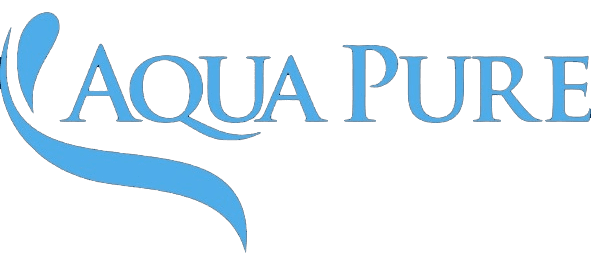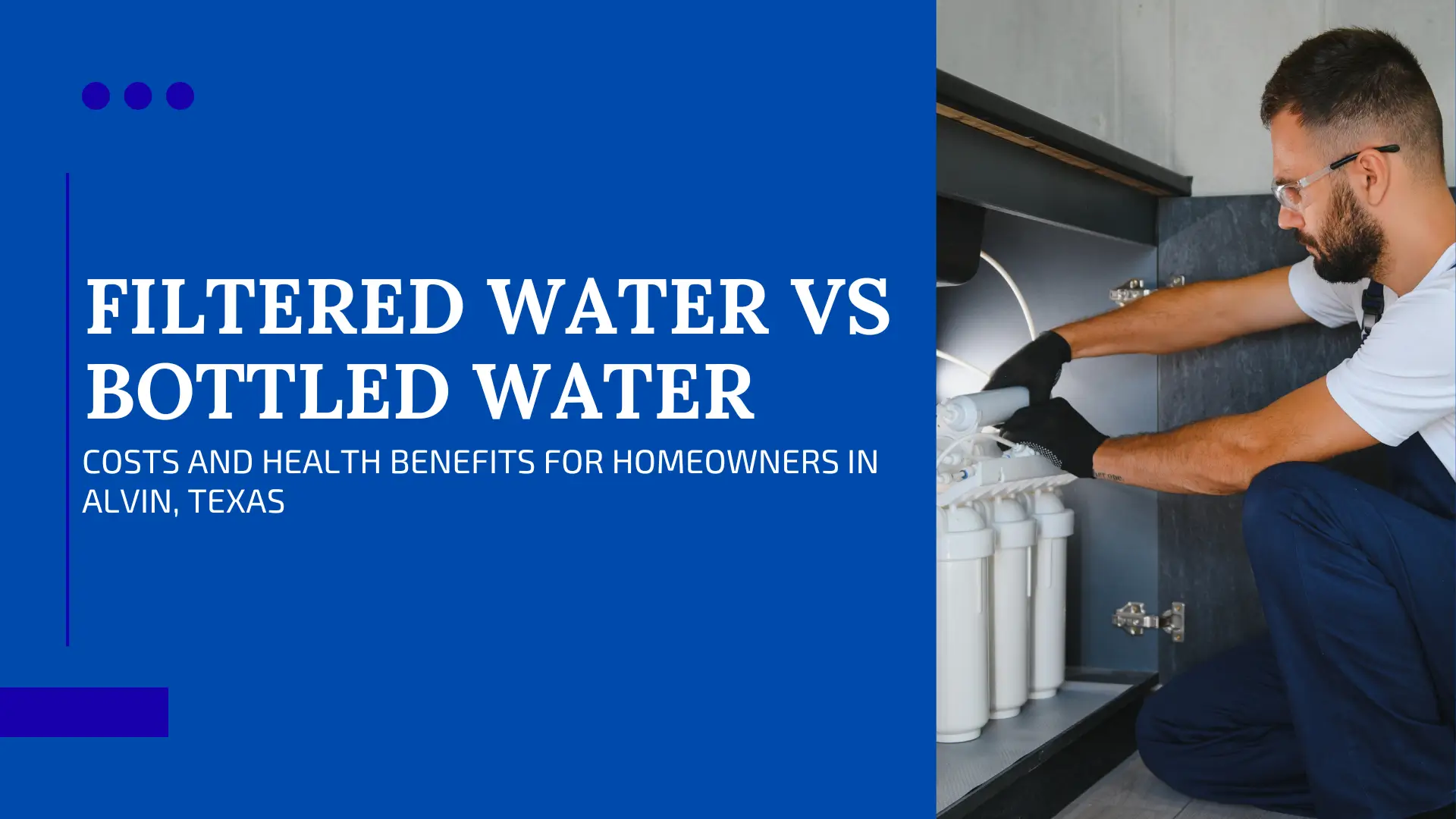It’s great that you’re thinking about your water choices. If you’re living in Alvin, Texas and you’re weighing whether filtered tap water or bottled water is the better option, you’re in the right place. Think of me as your knowledgeable neighbor who’s done a little homework so you can make an informed choicewithout the heavy technical jargon.
What’s going on with Alvin’s water supply?
First, let’s get grounded in what’s actually in our water here in Alvin (and yes, I poked around the data so you don’t have to).
From the city side: The City of Alvin Water Division reports that they maintain about 140 miles of mains and conduct required testing under the Texas Commission on Environmental Quality (TCEQ) regulations. They note one recurring issue: high iron and manganese levels in the groundwater sources, which can cause rustylooking water, stained fixtures, laundry issues, or discolored water in the home. From independent data: According to the Environmental Working Group (EWG) tapwater database, Alvin’s system (PWS TX0200001) shows detectable levels of disinfection byproductsthings like bromochloroacetic acid and bromodichloromethane, and total trihalomethanes (TTHMs)that exceed EWG’s healthguideline levels (though they may still meet federal legal limits). For example:
- Bromochloroacetic acid: 1.55 ppb in Alvin vs. EWG’s guideline of 0.02 ppb (77× guideline)
- Bromodichloromethane: 3.84 ppb vs. guideline 0.06 ppb (64× guideline)
- Total trihalomethanes (TTHMs): 29.7 ppb vs. guideline 0.15 ppb (198× guideline)
What does this mean? These are byproducts of chlorination (disinfection) of water. They’re not typically tastechanging, but they may carry health risks over the long termeven if the water meets official legal requirements.
Additional note: Because Alvin draws from groundwater in Brazoria County and has older infrastructure, residents sometimes report aesthetic issues. For example, a news story noted residents (in neighboring service zones) seeing water that looks “dark like coffee” when plumbing or mains are disturbed. It’s worth noting: that particular case may involve a provider outside city mains, but still shows that disturbance, sediment, and infrastructure age matter.
What does all this mean for your home, health, and budget?
- he presence of disinfection byproducts (DBPs) such as trihalomethanes can raise longterm health questionsespecially for vulnerable family members (pregnant women, infants, immunecompromised).
- Iron and manganese levels (though not typically a direct health hazard in moderate amounts) may lead to unsightly water, staining, and potential aesthetic irritation of skin or hair.
- Hard water minerals (calcium, magnesium) while not necessarily addressed explicitly in every Alvin report, are common in Texas groundwater systemsaffecting soap lather, skin dryness, hair texture, and appliance efficiency.
- Staining on fixtures, sinks, toilets, laundry if iron/manganese are higher.
- Taste or odor issues: you might notice a slight “chlorine” taste or smell of your tap water after treatment.
- Appliances: hard water leads to scale buildup in water heaters, dishwashers, inside kettles and coffee makers. That reduces efficiency and can shorten appliance lifespan.
- Plumbing: scale and mineral buildup mean more frequent plumber visits or reduced water flow.
- If you rely exclusively on bottled water for drinking and cooking, costs can rise quickly (buying cases, or larger jugs delivered).
- Using appliances more due to bottledwater only usage (e.g., boiling water, separate dispensers) can increase energy/water usage.
- Not treating hard water means higher maintenance or early replacement of waterusing appliances.
Bottom line: Alvin’s tap water is treated and meets regulatory standards, but there are real reasons why many homeowners opt for additional filtration or softening layers to improve taste, reduce wear on appliances, and reduce longterm risk from disinfection by‐products and mineral load.
Filtered water vs bottled water: the real deal for Alvin homeowners
Rather than generic claims, let’s bring both options into real life for Alvin.
Pros:
- Convenient: grab a bottle, it’s prepackaged, familiar taste for many.
- Perceived purity: people often feel more comfortable with sealed bottles.
Cons:
- Ongoing cost: If you buy bottled water regularly, that’s a recurring expense.
- Environmental impact: plastic waste, carbon footprint of transport.
- Doesn’t address hard water issues in your home: washing dishes, laundry, shower all still run on your tap water (unless you additionally filter those).
- Doesn’t remove DBPs or minerals present in tap water unless the bottled brand explicitly treats for those (which often it doesn’t).
- Storage and convenience: needing space, recycling, carrying.
Pros:
- Costeffective over time: once you install a system, the recurring cost tends to be much lower than bottled.
- Wholehome benefit: a properly configured system can treat all water coming into the home (kitchen, laundry, bathroom)so your appliances, plumbing, fixtures benefit too.
- Better control of contaminants: systems can target the byproducts, minerals, chlorine taste/odor issues that exist in Alvin’s supply.
- Convenience: no hauling heavy bottled water, and you always have treated water on tap.
Cons:
- Upfront cost: installation of a wholehome system or undersink filter requires initial investment.
- Maintenance: filters will need replacing; softeners need salt and periodic checkups.
- System selection: you must match the right system to your home’s needs (i.e., fixed by local test results). Choosing wrong may underperform.
How much does this cost in Alvin?
While I won’t speculate on exact dollars (home sizes, needs vary), here’s a realistic breakdown.
Bottled water cost estimate: If you consume 1 gallon per person per day with a family of four, that’s 4 gallons daily. At maybe $1 per gallon in bottles (depending on size and brand), you’re looking at around $4 per day = about $120 per month. Over a year, roughly $1,400 (just for drinking water). And remember: appliances and showers are still on tap.
Filtered/softened tap water cost estimate: A wholehome system may cost a few thousand dollars installed (depending on house size, configuration). But amortized over 1015 years, the annual cost typically drops under the bottled cost easilyeven after maintenance, filter replacements, and watersoftener salt or conditioning costs. With the right system, you could pay a few hundred dollars per year, instead of over a thousand for bottled water.
In Alvin’s situation, with mineral load from iron/manganese and DBPs present, a combined filtration + softener system likely yields savings in appliance lifespan, fewer plumber calls, better laundry and fixture longevityso the “value” is more than just drinking water.
What you can do right now (actionable advice)
1. Test your home’s water
Before you buy anything, it’s smart to know exactly what your home’s water is like:
- Contact the city’s annual drinkingwater report for your system. For Alvin, you can view the “Annual Drinking Water Quality Report” via the Water Division. Consider home test kits or professional testing: check for iron/manganese, hardness (calcium/magnesium), chlorine taste/odor, and key DBPs (which may require lab work).
- Pay attention to signs: discoloration, stains on fixtures or laundry, slow drips, scale buildup.
2. Interpret your results and set your priorities
- If you have hard water (you see limescale, poor soap suds), then a water softener is a strong candidate.
- If you taste or smell chlorine, or want to reduce DBPs/disinfection byproducts (especially if you have a ceramic pitcher filter or undersink filter now and still taste something), then you may need a more robust filtration system (activated carbon + reverse osmosis or wholehome filtration).
- If you have visible discoloration (rusty water) or frequent plumbing issues, that suggests you should act sooner rather than later.
3. Match the right solution
- Water softener system (ideal for hardness, mineral scale, improving appliance lifespan). For Alvin homes with elevated mineral content, a softener helps a lot. (Installation link:
- Home water filter system (addressing taste/odor, chlorine, DBPs, heavy metals). A wholehouse system or pointofuse system depending on budget/needs. (Installation link: Many homeowners combine both: softener + filtration to cover all bases (appliances, plumbing, and drinking water).
4. Implementation tips
- Choose trusted local providers: a Texasowned, familyoperated company with certified technicians offers peace of mind. For example, the local firm provides free installation and support by certified technicians, easy financing (including $0 down “Buy Now – Pay Later”), lifetime warranties, and customized solutions per home.
- After installation: Maintain the system (change filters, refill salt for softener).
- Continue monitoring: Check your system annually, retest your water every 12 years (especially if you see changes in taste, color, or appliance behavior).
5. Decide between filtered tap vs bottled
If you get a solid filtration/softener system, your need for bottled water for drinking/cooking will likely drop to nearly zero (unless you prefer bottled for some reason). You’ll have cleaner water everywhere (not just your glass), appliances will last longer, and you’ll likely save money longterm.
Local Snapshot: Alvin, TexasWhy this matters here
- Because Alvin’s supply shows DBPs elevated relative to EWG healthguideline levels (even if legally OK), it means residents who are cautious may want that added filtration layer.
- The iron/manganese issue (rusty water, stains) is specifically flagged by the city’s Water Division as an acknowledged local issue. The geology of Brazoria Countywhere Alvin sitsmeans groundwater aquifers often carry mineral loads (calcium, magnesium, iron, manganese). The older pipe infrastructure (140 miles of mains) may contribute to transient discoloration when water mains are flushed or repaired.
- A local news item pointed out concern in nearby service areas about water appearance (dark color) after disturbances. While that particular case was outside City of Alvin mains, it illustrates the kind of infrastructure and sediment issues that can occur. So, for an Alvin homeowner, this isn’t just hypothetical: these are real issues you might face and can proactively address.
Frequently Asked Questions
Q: Is Alvin tap water safe to drink?
A: In shortyes, according to state and federal regulatory standards the city meets required limits. The City of Alvin Water Division confirms regular testing and compliance. However, “safe under regulatory limits” doesn’t mean “perfect” or optimized for taste/longterm appliance health, so many homeowners choose to filter for added protection or comfort.
Q: Do I need a water softener in Alvin?
A: If you notice signs of hard water (scale buildup on faucets, diminished soap suds, laundry rougher, appliances working harder), then yesa water softener is highly recommended. Also, because groundwater mineral burdens are typical in Brazoria County, a softener will benefit your wholehome plumbing and appliancessomething bottled water alone cannot help with.
Q: Using bottled water onlyhow much am I spending, and is it worth it?
A: As a rough estimate, relying solely on bottled water for a family can cost over a thousand dollars annually (possibly more depending on consumption). That doesn’t cover the hidden cost of hard water damage elsewhere. Meanwhile, filtering your tap water and treating hardness tends to cost much less over time, while delivering broader benefits (not just for drinking water but for your home systems).
Q: How much will a filtration system cost and how do I pick one?
A: Costs vary widely depending on home size, water issues, and whether it’s just pointofuse (kitchen) or wholehouse. What’s important:
- Get a water test first.
- Choose a system sized and configured for your home’s spec (hardness level, flow rate, contaminant profile).
- Consider local installers who offer: free installation/support, certified technicians, financing options (including $0 down), lifetime warranty, and customized homes.
- After installation, you’ll spend maintenance dollars (filter changes, salt, inspections) but far less than bottledwater costs over the long term.
Q: Should I keep using bottled water even if I install a filter?
A: Possibly for a short transition period if you’re trying a new system and want peace of mind. Over time, if your filter or softener is doing its job (good taste, clear water, no odor), you can likely phase out bottled water for drinking and cooking. Many homeowners keep a few bottles handy for travel or emergencies, but not as a main water source.
Q: Will filtered water help my appliances and plumbing?
A: Absolutely. A softener reduces scale buildup in water heaters and dishwashers; filtered water prevents some mineral/chemical exposure that can shorten appliance lifespan. This means fewer repairs, better efficiency, and longterm savingswhich is something bottled water doesn’t address.
Final Thoughts
If you live in Alvin, you’re in a unique situation: you have access to citytreated water that meets regulatory standards, but you also face local geological and infrastructure realities (minerals, iron/manganese, treatment byproducts). Choosing between bottled water and filtered/softened tap comes down to your budget, your tolerance for taste/odor issues, and how much you care about longterm protection (appliances, plumbing, health).
From what I see: investing in a properly sized filtration and watersoftening system makes solid sense for most Alvin households. The upfront cost may give you pause, but the longterm savings (and the improvement in water quality and home system longevity) will likely outweigh ongoing bottledwater purchases.



